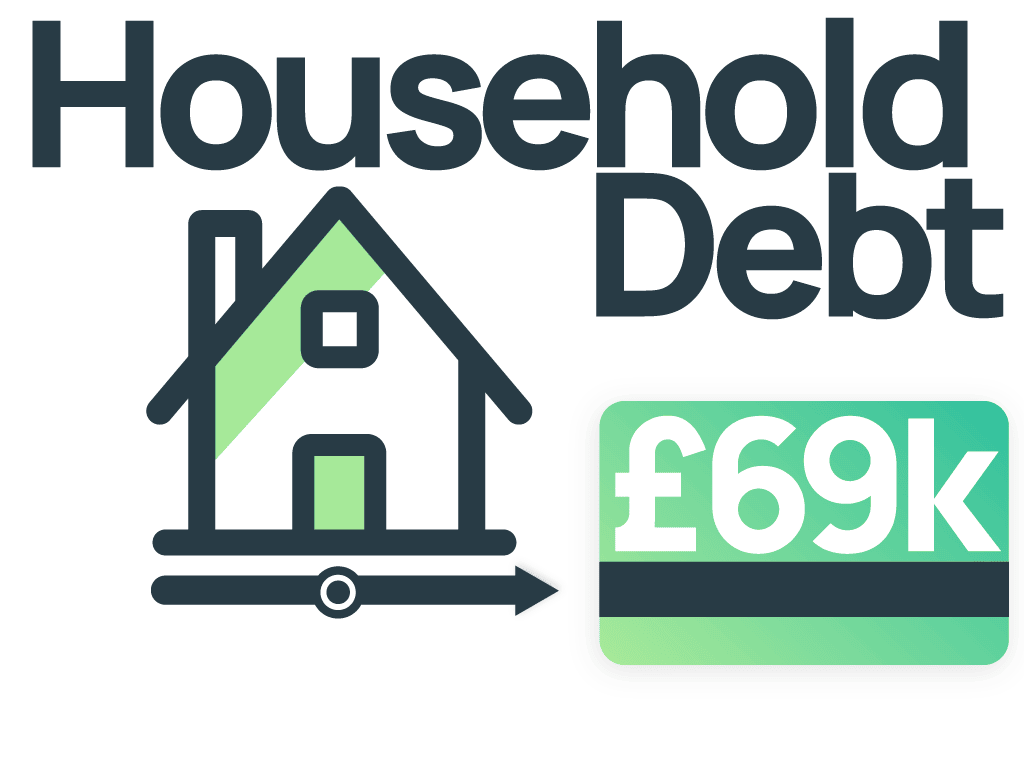According to recent figures released by the Financial Conduct Authority (FCA for short), 5.5 million of us missed bill payments or borrowing repayments in the previous six months, representing 11% of the population.
Times are tough. Last winter, an increasing number of households in the UK faced difficult financial choices: heat homes, fuel vehicles, or pay bills. With the cost of living crisis likely being a primary cause, it’s no wonder that many of us are struggling to keep up.
Food banks are facing more demand than they can meet and public services are often operating at a deficit. Local councils are reported to be increasingly close to bankruptcy. While household debt isn’t a new trend, the difficulty in managing it is on the increase. This financial strain also extends to essential services such as home insurance, which can become harder to afford or renew for those with a poor credit score.
The growing burden of debt and its consequences
Recent numbers suggest a significant proportion of us know all too well that debt is an unforgiving beast. It’s an easy trap to fall into, and quite the opposite to get out of. Even more frustrating is the cycle where the more debt an individual accumulates, the more the costs spiral out of control. ‘Rinse and repeat’ is the common theme. Credit cards, mortgages, utility bills—miss any of these payments and you’ll likely incur a late penalty fee or additional surcharge.
When it boils down to it, knowing which of those to prioritise over the other is easier said than done. Yet, if not dealt with quickly, the situation can deteriorate from manageable to disastrous. This can have further implications, such as the risk of losing home insurance coverage, which is crucial for protecting your property. If you lose insurance cover, you’ll find yourself in particularly vulnerable territory.
8 million of us need debt advice
If that’s something you can relate to, know you are not alone. In a recent survey by the Money & Pensions Service, it was revealed that over
8 million people in the UK are in need of debt advice, highlighting the widespread nature of financial struggles. This need is underscored by data from
The Money Charity, which shows that as of February 2024, the average UK adult carries £4,177 in unsecured debt. When looking at households, the figures become even more daunting: the average total debt, including mortgages, amounts to £69,569 per household, with credit card debt alone averaging £2,485. The financial strain is evident as 2023 marked the year with the sharpest
rise in defaults on unsecured lending.
While CCJs (County Court Judgments) and IVAs (Individual Voluntary Arrangements) offer paths to recovery, your credit rating will be significantly affected. A CCJ, for instance, remains on your credit report for six years and can severely reduce your ability to secure credit during that time. Similarly, having an IVA also negatively impacts your credit score, as it indicates a history of debt management issues, although it might be viewed slightly more favourably than a CCJ because it shows an effort to resolve outstanding debts.
Credit ratings, or credit scores exist on record. Most of us have one. In a less than favourable state, it often closes a significant number of doors. A poor credit rating can make borrowing money costly and difficult. It can also impact your ability to rent a property, secure a mobile phone contract, and more—essentially affecting any situation that requires a credit check.
Credit ratings can vary slightly between agencies like
Experian and
Equifax.
Experian scores range from 0-999, with a UK average of 797, while Equifax scores range from 0-1000, with an average of 585.
Credit scoring isn’t solely based on your credit history, it also serves as predicting future behaviour. As any application for credit you undertake, initiates what’s called a hard credit check, which takes a good look at your credit record. Not only does this observe your repayment history, but your eligibility.
It’s important to note that a hard credit check appears on your credit report and can lower your credit score for up to 12 months, potentially affecting your ability to obtain credit in the short term. Therefore, approach anything that requires a hard credit check with due diligence.
 £69,000: The average household debt burden for UK families.
£69,000: The average household debt burden for UK families.
Consumers in the UK have some level of protection when purchasing financial services. This comes in the form of the FCA. Formally known as the FSA, (The Financial Service Authority), the FCA tightly regulates all consumer financial services and products. Banks, Investments, Loans, Insurance, all fall under the arm of the Financial Conduct Authority – and for good reason.
Regulation is largely consumer-centric, designed to protect you from financial harm by requiring financial service businesses to provide fair and transparent information on the services they offer. This helps consumers understand the potential risks and costs involved, enabling them to make fully informed decisions.
Put simply, they ensure that consumers clearly understand what they are agreeing to. This includes making sure that interest rates on potential overdrafts are transparent, and that the surcharges for exceeding an overdraft limit, as well as the consequences of late repayments, are clearly explained.
Once we sign said agreement – or tick the required checkbox, we enter ourselves into a legally binding contract.
The risks associated with such agreements should be clearly highlighted, preferably in a prominent, bold, and underlined statement. A common example used would be : ‘Your home is at risk if you do not keep up repayments on a mortgage or any other loan secured on it’.
But that strictly serves as a preventative measure and is by no means a solution to having a bad credit rating.
Optional recovery to strengthening your credit score:
- Rebuild your credit file
- Don’t miss repayments
- Address your overdue accounts
- Reduce the frequency of new applications
- Make sure all of your details are up to date
- If not already get on the electoral register
As highlighted at the beginning of this article, 11% of Brits are finding it difficult to stay afloat. So it’s no surprise that more and more are being categorised as having a poor credit score.
That credit rating will affect you for some time, complicating access to essential services such as home insurance. Even so, not all is lost. While standard insurers may be hesitant to allow monthly payments for home insurance if you have a history of missed payments, CCJs, or an Individual Voluntary Arrangement, alternatives do exist.
Why we take an Intelligent Approach
At Intelligent Insurance, we recognise that a one-size-fits-all model does not work for everyone, especially when dealing with the nuances of credit history. Unlike many insurers who rely solely on conventional data, we take a broader approach to asses your situation.
This method ensures that we can often offer insurance solutions when others might not. For example, if you have experienced bankruptcy but have since worked towards rebuilding your credit, the third party credit provider we use recognises and accounts for your recovery efforts.
We believe in second chances and are committed to offering insurance rates and terms that fairly reflect your circumstances.
If you’re ready to explore how we can help you secure home insurance that acknowledges your unique financial situation, don’t hesitate in getting in touch with us – we’re here to help.




